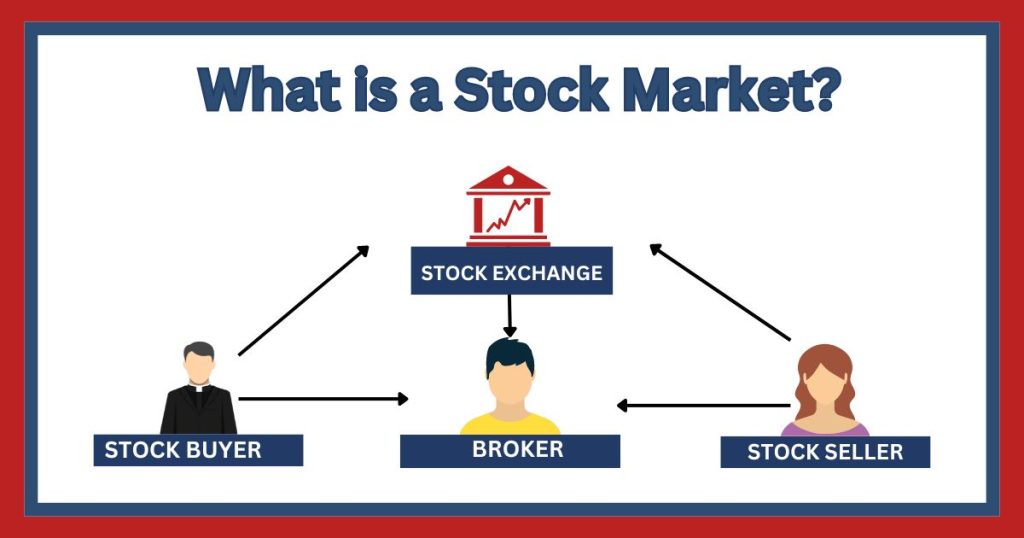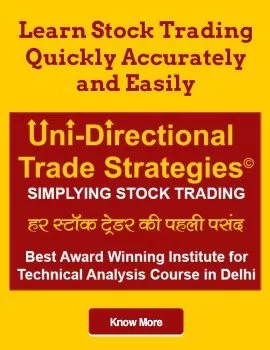Want to try the stock market but don’t know how to earn returns? Here is a stock market for dummies to help you learn the basics. What’s the difference between stocks and bonds? How can you analyze stock trends? Why does diversification matter? Are you new to investing or want to learn more? This tutorial covers basic concepts to help you understand stocks.
Learn about ideas like managing risk. Learn about investing options. Learn how dividends affect wealth. Find out how economic indicators can impact stock market value too. Then, you’ll be able to better understand stock price volatility. By the end of this tutorial, you’ll be able to step into the fast-paced world of the stock market.
Key Takeaways
- Start small. Learn the basics of the stock market before trying to trade stocks.
- Know the players. To understand how the market moves and how households take part, learn about key players. These include firms and national stock exchanges.
- Diversify Your Portfolio. Spreading risk may get you higher returns. Do this by investing in different market assets and various company households.
- Stay informed. Learn how trading works and how prices are set. Then, you can make smart investment choices.
- Embrace Volatility: The stock market is major in the economy. Companies, households, and the market can rise and fall.
Understanding Basics
Key Components
The stock market lets people and organizations buy and sell shares. Publicly traded companies list their shares on the stock market. In doing so, these companies can raise money. The primary capital market is where companies sell their securities directly to raise funds through initial public offerings (IPOs) called IPO market. They use it to fund their operations and expansion.
The SEBI and NSE regulators help monitor the Indian stock market. They do this to ensure that they follow fair and efficient practices. They also do it to protect investors from misconduct. Companies that list shares on the stock market must follow transparency rules. The rules help investors feel confident in stock investing.
Pros:
- Provides capital to businesses
- Protect investors
- Requires transparency
Cons:
- Volatility
- Compliance costs
How It Works

The stock market has many different types of individual retail investors and participants. Mutual funds and pension funds are institutional investors. They put their money in the stock market using various investment strategies such as fundamental analysis, technical analysis, passive index funds, responsible investment, and long-term investment to minimize risks and maximize returns. High-net-worth individuals, or wealthy investors, may also invest in the stock market.
Mutual funds play a significant role in the stock market. They are composed of stocks from a mutual fund of many different companies and are common in retirement accounts and 401(k)s.
Investors seek to make money in the stock market. They earn income from dividends or capital gains. They sell stocks for more money than they bought them for. Traders, in contrast, try to earn money from the rapid fluctuations in stock prices. According to regulators, accredited investors come from wealth or income backgrounds. Retail investors invest smaller amounts of money compared to wealthy investors.
- Types of Participants:
- Institutional investors
- High-net-worth individuals
- Retail investors
- Why investors buy stocks:
- Income
- Capital gains
- Types of Investors:
- Long-term investors
- Traders
- Accredited investors
What is the stock market?

Stock markets function as platforms where stocks are bought and sold, playing a crucial role in the global economy by facilitating capital formation and liquidity. A stock’s price usually depends on the company’s performance and the outlook for the business. Economic conditions can impact stock prices. They also affect market volatility. Supply and demand in the stock market determine price fluctuations.
Publicly Traded Companies
The stock market gives shareholders a place to buy and sell company stocks. The overwhelming majority of stock trading occurs in the primary market and the secondary market, where stocks are traded on exchanges or ‘over the counter’ after being issued in the primary or secondary market. It also serves as an accurate gauge of the health of the economy and the stock exchange market. The SEBI and NSE regulators monitor the stock market. They do this to ensure that all people can expect fair and efficient markets.
Stocks
When companies go public, they sell shares to investors in an initial public offering (IPO). Investors can then buy and sell publicly traded company stocks on national stock exchanges, with stockbrokers acting as intermediaries in facilitating these transactions on major stock exchanges. These include the National Stock Exchange (NSE) and BSE. By owning stocks, investors gain ownership of the publicly traded company. They get certain rights, including voting and dividends.
Key market players
Investors and traders determine the market value of securities. They do this for sales and purchases on the stock market. Stocks represent ownership in companies. They give investors rights to profits and votes on company matters. Investing in stocks means an investor expects the company to grow and prosper. The available stock types include common stocks with voting rights. And preferred stocks without votes, but with certain dividends.
The Securities and Exchange Commission (SEC) regulates the stock market to protect investors from financial fraud, maintain fair, orderly, and efficient markets, and facilitate capital formation.
But traders usually seek shorter-term gains. They do this by trading securities based on stock price changes. They buy and sell securities to take advantage of market trends. Institutional investors include large organizations. They are, for example, mutual funds, pension funds, and insurance companies. They trade securities in large amounts. Retail investors buy and sell securities with their own money. They do this for personal investment. Accredited investors are either individuals or entities. They come from wealth or have high incomes. Institutional investors allow them to have financial resources to invest in opportunities.
Stock exchanges regulators
Brokers help determine the will of buyers and sellers on the stock market. They act as a middleman and intermediary to match different parties’ buy and sell orders. A broker’s duty is to execute trades for clients. They must also deal fairly and honestly with all clients and with the market. Brokerages offer services. These include investment tips, research reports, and executing trades. They help clients make informed choices.
The London Stock Exchange (LSE) has played a crucial role in the global financial market. Historically, it has provided a platform for companies to raise money, cross-list shares, ensure fair trading practices, and offer liquidity for buying and selling stocks.
Investors generally take a long-term perspective when buying and selling securities. They focus on holding investments for an unpredictable period. They do this to get the benefits of long-term economic growth prospects.
Traders use different methods to buy and sell securities. They often use trading strategies. These strategies involve buying and selling stocks or securities. They do this to take advantage of the rise and fall of stock prices. Institutional investors manage large funds. The funds come from sources like pension funds or endowments.
Retail investors participate in trading activities with their own money through brokerage accounts. Non-institutional investors can access investments in other securities and financial instruments that institutional investors have access to. Certain wealth or income levels determine this.
Brokers
A broker helps to determine the interests of buyers and sellers on the stock market. They act as a middleman and intermediary to match different parties’ buy and sell orders. A broker’s duty is to make trades for clients. They must also deal fairly and honestly with all clients and the capital market.
Brokers offer services. These include investment tips, research reports, and executing trades. They help clients make informed choices.
- An individual looking to invest in the stock market should pick a trustworthy broker. This will ensure the safety and security of their funds.
Regulators
Stock exchanges are bound by strict rules and regulations to ensure market integrity. The government enforces laws against market manipulation. It also enforces laws against fraud to protect investors. The SEBI regulates the stock market. It does this to promote fair and efficient markets.
- Stock exchanges need timely reporting and transparency to ensure fair dealing.
- The SEC regulates stock market activities. It’s done so to prevent insider trading and to keep a fair field for all investors.
- Stock exchanges must follow rules. They do this to keep investors’ trust and market order.
Over The Counter Market
A stock market refers an exchange provides a venue for the trading of stocks and other securities. It acts as a middleman between individuals, institutions, and the companies they represent. Stock exchanges impose requirements for timely reporting and transparency to ensure fair dealing. Investors enjoy stock exchanges. They provide liquidity and transparency. Exchanges offer clear prices and fast trades.
- Stock exchanges have liquidity. It lets investors buy or sell assets without affecting prices.
- The NSE and BSE attract investors from India and abroad. They’re key to the global financial system.
- Clear stock exchange pricing boosts market efficiency. It helps investors decide on their investments.
Alternate Trading Systems
The OTC market isn’t centralized fourth largest stock exchange. It’s for trading of stocks listed not on a formal stock exchange traded over the counter only. OTC stocks are stocks listed in the OTC market. Trading on the OTC market differs from a stock exchange. It involves informal, decentralized talks between buyers and sellers.
- Trading in the OTC market is quite different from trading on a formal stock exchange. This is due to less regulation and more lenient listing standards.
- The OTC market is flexible and easy to use. But, it also poses greater risks to investors. This is due to lower liquidity and less transparency than stock exchanges.
- Investors must decide whether the OTC market’s cost savings are worth the risks. The risks come from less regulation and oversight.
Diverse market assets
Types of Stocks
Alternate Trading Systems (ATS) and Electronic Communications Networks (ECN). ATS and ECN match the orders of buyers and sellers of various securities and exchange commissions. An ATS offers an alternative electronic trading venue for securities. It’s more efficient than stock exchanges. Through ATS, traders can conduct transactions.
- Pros:
- It can provide greater liquidity for securities.
- It can offer extended hours of trading beyond normal exchange operating hours.
There are two main types of stocks available for investors to buy and sell stocks in the equity market. These types are growth stocks and value stocks. Growth stocks usually represent companies with high potential earnings growth. Value stocks are different. They price them below their perceived value. Fundamental analysis forms the basis of this value. Investors can cut risk by spreading their stock portfolios across different stock types.
Bonds versus stocks
Bonds and stocks offer different investment opportunities. They also have varying risks and returns for investors. Stocks represent ownership in a company. But, bonds are debt instruments. They are usually issued by corporations or governments. Bond investors who receive coupon payments. Stock investors earn proceeds based on the company’s performance.
- Types of Stocks:
- Growth stocks: Companies that possess high earnings growth prospects.
- According to fundamental analysis, value stocks represent companies that investors undervalue.
When making a portfolio, investors should weigh the risks and returns of bonds and stocks. This will create a well-diversified portfolio.
Other Traded Assets
Now we compare bonds and stocks, and see that there is a huge difference between them in terms of risk and return. Bonds offer lower returns and risk. Stocks offer higher returns and risk. This trait of bonds and stocks is vital. Investors must grasp it to build a balanced portfolio.
- Cons:
- Not as great as potential returns from equities.
- Inflation can decrease bond values over time.
Bonds and stocks also differ. Bondholders own a company’s debt. Stockholders own the company. If a company or issuer goes bankrupt, bondholders will have claims on the company’s assets. Claims focus on them. Also, stockholders should assess their risk tolerance. They should also consider the time they can commit to investing. They should also consider the market it’s in. They should do this before investing in bonds or stocks.
Price Determination
Factors Influencing Prices
In the market, many other assets expose stock investors. These include American depositary receipts (ADRs) and real estate investment trusts (REITs). ADRs are shares or depositary receipts of foreign companies listed on a U.S. stock exchange. They represent some of a company’s stock. A depositary, exchange traded fund or bank holds them. They trade at the same exchange as the company’s stock. REITs are investments. They use funds from investors to build and own real estate.
People should consider the pros and cons of different assets when investing in them. For instance, stocks usually carry higher risks with higher growth potential. REITs provide investors with financial stability with it’s income dividends. Lower volatility characterizes them, but rising interest rates can still harm them.
A good way to manage risk is to diversify. You should own different asset types. That way, the gains from one type can offset losses in another. Investors can diversify their portfolios. They can do this by adding real estate investment trusts to their stock mix. This mix of stocks and trusts brings higher returns. REITs let investors invest in real estate. They do this without buying real estate assets.
Role of Market Indexes
The price of any stock in secondary market is set by many factors. These include the company’s earnings, market sentiment, and the stock’s past prices. When the company says it’s earnings are stable or rising, stock prices usually go up. Investors prefer to own profitable, growing companies.
Economic conditions and political events also affect stock prices and its volatility. For example, when central banks raise interest rates, it may hurt companies. This is because it raises the cost of financing and lowers stock prices. Terrorism and political corruption affect investor sentiment. This sentiment then influences stock prices.
To pick the best investments, investors should research. They should analyze stocks and other traded assets. They’re interested in them. Following market indexes, such as the S&P 500 or Dow Jones, helps track the whole market. By watching market indexes, investors can spot trends in the market. This helps them make better investment decisions in the big picture of the economy.
Significance of the Stock Market
Economic Impact
Market indexes, such as the NIFTY 50 and S&P 500, show the stock market’s performance. They represent the whole stock market. Therefore, changes in these indexes represent the stock market. So, investors watch these indexes. They do this to get an idea of the stock market’s performance.
Investors should track the market indexes. Major indexes, like the S&P 500, represent nearly the entire stock market. Investors compare individual stocks and portfolios to market indexes. They do this to see how well they’ve done and if their decisions were profitable.
Knowing about stock market indexes gives insight. It reveals the stock market’s strength and trends. Investors should watch stock. They show stock market trends. Investors can adjust their strategies based on them.
Investor Opportunities
The stock market creates jobs. It also forms capital and spurs growth in the economy. Stock market activities, like companies issuing shares to raise capital, create capital. This capital enables business expansion and, in turn, it’s job creation.
Stock market fluctuations also have an impact on consumer confidence and behavior. When stockholders gain from their investments, they feel wealthier and hence spend more. However, stockholders may cut spending. This is due to financial uncertainty from a stock market downturn.
The stock market and the real economy have a mutual relationship. Economic conditions affect the stock market serves and prices. Stock markets’ performance reflects the economy. So, it’s the first stock exchange market is part of the real economy. Changes in either sphere affect the other directly or indirectly.
Navigating the market
Choosing Stocks
Stock market investors have many ways to grow their investments. They can do so through dividend investing, growth investing, and more. Long-term investing is beneficial to accumulate wealth and reach financial targets. Investors should also diversify their portfolio. They should manage risks to get the most from their investments.
- Pros:
- High potential gains
- Gains from expansion
- Dividend payments
- Cons:
- Capital loss
- Fluctuating investments
- Requires constant study
When choosing stocks, consider the company’s earnings and finances. Also, look at its industry and market position, as well as the overall market trends. Investors should conduct research and analysis on technology stocks and financial instruments before investing. It’s crucial to know your targets and risk appetite when trading stocks.
Understanding Risks
You must understand the risks you face when investing in private equity and stocks. Investors should learn to pick stocks. They should do this by evaluating the publicly traded company’s earnings. They should also look at its industry position and market trends. It’s critical to research the stock for investment. It’s key to success in stock market investments.
- Evaluate company financials
- Understand industry positioning
- Macroeconomic conditions
Knowing your targets helps you align your portfolio to fit your needs. Knowing your risk appetite will help you choose the right investments for yourself.
- Key Information:
- Investigate which stocks to invest in.
- Keep track of market dynamics
- Be updated with economic conditions
Future of Stock Trading

Technological Advances
Risks in the stock market include price fluctuations. Investors also face economic crises. Investors can reduce these risks by using strategies. They include diversification, asset allocation, and risk management. You can diversify by investing in different types of assets. The gain of one type can offset the loss of another.
Another strategy used by investors to overcome stock market risks is asset allocation. Investors divide their assets among various types of assets. These include equities, debt, and cash. Each asset class has different risks and returns. Investors achieve balance by allocating their assets.
Investors should also learn to manage risks. They do this to protect their investments during uncertain markets. Ways to manage risks include: placing stop-loss orders. You can also own hedge funds with options and study the stocks.
Market Trends
The stock market today isn’t the same as it was 20 to 30 years ago due to major technological advancements. These advancements include automated trading strategies. They also include online brokerage houses. They have changed how traders and investors trade and execute orders. Traders use computer programmes in algorithmic trading. They do this to determine their trading decisions. They base these decisions on specified parameters.
Online brokerage houses allow people to trade securities over the internet. These include stocks, options, and bonds. Investors can place orders easily. They can do this using user-friendly interfaces provided by these brokerage firms. Real-time data streaming and investor tools also help beginners to seasoned investors. They can use them to make informed stock market decisions.
New tech advances have improved markets. They do this by making price discovery faster and cheaper. Investors today execute their trades faster with lower costs as compared to before. Markets are more liquid and transparent. This is due to advanced electronic trading systems.
Closing Thoughts
You’ve learned the basics of the stock market. This includes its traders. It also includes the ways they trade and the importance of other assets. You also understand how prices are set. You know how to navigate this complex system.
Now you’re ready for the future of stock trading! Keep yourself updated, analyze trends and make informed decisions to maximize your returns. You may also choose to delve deeper into specific fields. You can also get professional advice to improve your trading skills.
The stock market has many chances for you to grow your money and get great returns. It’s your job to capture them.
Frequently Asked Questions
What are the key players in the stock market?
The key players in the stock market are individuals. They include stock brokers association big investors, mutual fund, managers, stockbrokers, and market makers. They all play important roles in the mechanisms of stock trading.
How does price determination work in the stock market?
Demand and supply are the major factors that set the stock exchange prices. If more buyers show interest in a particular stock exchange, than there are stocks for sale, the stock price will increase. If the supply exceeds the demand, the prices will decline.
Why is it important to understand the basics of the financial markets?
Understanding the stock market basics is vital. They provide a foundation for smart investing. It helps people understand concepts like risk management. These concepts are key to successful investing. They include portfolio diversification and fundamental analysis.
What are diverse market assets in relation to the stock market?
Diverse market assets are various securities. They trade on the stock market and include ones beyond traditional stocks. These include bonds, commodities, exchange-traded funds (ETFs), options, and derivatives. Diversifying across these assets can help manage risk and optimize returns.
How can one navigate the complexities of the stock market? How can they pick profitable investments?
Succeeding in the stock market requires education and research. You might also need help from financial advisors. By staying informed about market trends and doing thorough analysis. They can make more confident decisions when trading stocks. They need a well-defined investment strategy.







